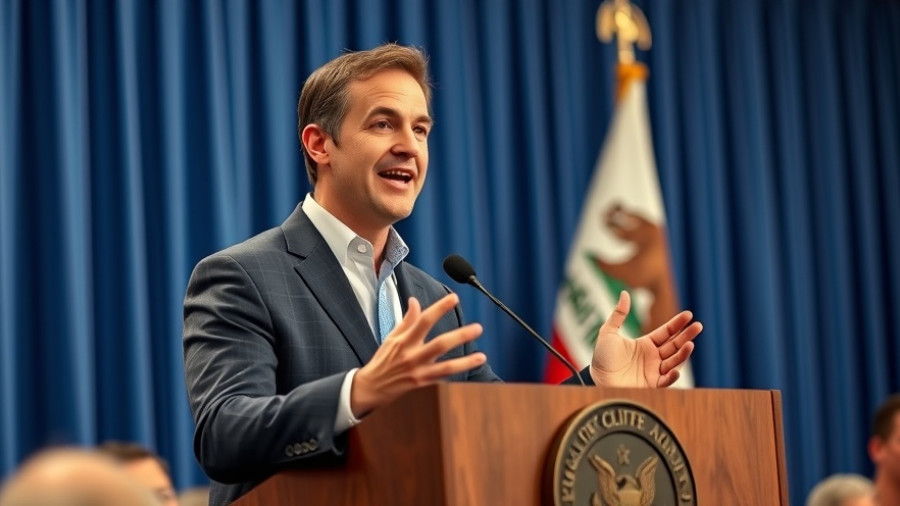
California Stands Up Against Trump: The Fight for Food Stamp Benefits
The recent lawsuit filed by California against the Trump administration over food stamp benefits highlights a significant moment in the ongoing struggle to provide for the most vulnerable populations. As families face increased financial pressure, state officials are adamant that the federal government must uphold its responsibility to support low-income families relying on the Supplemental Nutrition Assistance Program (SNAP), known as CalFresh in California.
Understanding the Stakes: Who Benefits from CalFresh?
CalFresh provides critical support to over 5.5 million Californians each month, offering about $1 billion in food assistance. For the average family, this aid translates to approximately $330 monthly, directly impacting their ability to secure nutritious food. The stakes are incredibly high; without these benefits, many families would struggle to put food on the table, leading to increased rates of hunger and malnutrition.
A Historical Perspective on SNAP and Federal Assistance
SNAP has played an essential role in alleviating poverty in the United States since its inception over 60 years ago. Historically, this program has been a safety net during economic downturns, providing essential food assistance to those in need. The recent withholding of benefits during a federal government shutdown marks a troubling deviation from established norms where food assistance continued even in times of political stymie. For many households, this cut means the first time they face a complete halt in benefits, as per the warnings of state officials.
The Emotional Toll on Families
The emotional impact of losing access to food assistance can be devastating. Families unsure of where their next meal will come from often experience heightened anxiety and fear, exacerbating existing stressors. The situation becomes particularly dire as the holiday season approaches, a time when many families rely on their monthly benefits for gifts and holiday meals, not just everyday sustenance. The announcements from Governor Gavin Newsom and Attorney General Rob Bonta emphasize that several safety measures are being enacted to prevent hunger during this critical period.
California’s Response: Taking Action for Families in Need
In response to the federal government's decision, California’s leadership has sprung into action. Governor Newsom has announced the fast-tracking of $80 million in state funds to bolster food bank efforts in light of the impending shortfall. Moreover, the mobilization of the California National Guard to assist with food distribution underscores the state's commitment to ensuring no family goes hungry during this crisis. By addressing food distribution with urgency, California aims to mitigate the ripple effects on food insecurity that would otherwise somberly settle over its communities.
The Broader Implications: Food Insecurity on the Rise
This lawsuit is more than just a legal battle; it signifies a broader fight against food insecurity. Advocate groups project that withholding SNAP benefits will cause demand at food banks to skyrocket, potentially leading to shortages as families scramble for resources. The implications stretch beyond California, as similar cases across the nation reflect a growing concern about inadequate support systems for low-income individuals.
Diverse Perspectives: Political Ramifications and Responsibilities
The political dimensions of the lawsuit reveal significant differences in how state and federal administrations view their responsibilities towards public welfare. The Trump administration’s hesitation to fund SNAP, despite having allocated emergency funds, raises questions about political will and prioritization of support for the economically vulnerable. California's legal challenge may spur broader discussions about the ethics of food assistance and how politicization can affect millions across the country.
Take Action: Your Role in the Fight Against Food Insecurity
The humanitarian implications of this lawsuit extend beyond the courtroom. Individuals and communities can take proactive steps to support food banks, advocate for vulnerable populations, and engage with local government initiatives aimed at reducing food insecurity. Every effort counts as Californian families face unprecedented hardships that demand collective action.
As the legal proceedings unfold, keep informed and connected with your local food assistance programs. Advocate for policies that support food security and consider donating or volunteering at local food banks to make a tangible difference.
 Add Row
Add Row  Add
Add 



Write A Comment